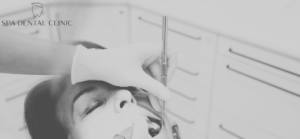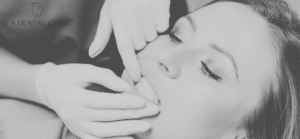Dental Tools Used to Care for Your Smile
This blog aims to talk about dental equipment. Knowing what each tool is used for can make your visit to the dentist less scary and a lot more interesting. We’ll go over what the different tools are called and what they do, so you can be in the know next time you’re in the dental chair.
It’s always good to have an idea of what your dentist is using and why, which can help you feel more at ease during your next appointment!
What is dental equipment?
Dental equipment covers a broad range of tools and devices that dentists and hygienists use to examine, diagnose, and treat dental ailments. This equipment helps dental professionals manage everything from routine cleanings to more complex surgical procedures.
This includes everything from examination tools like mirrors and probes to treatment equipment such as drills and scalers. Knowing these tools and what they do helps a lot in the dental care process, making patients more comfortable and proactive about their oral health.
Common dental equipment and what they do
Let’s take a closer look at some of the most common tools you might see at your next dental appointment and explore their uses:
- The dental chair
The dental chair is the centrepiece of every dental clinic. It’s designed to ensure patient comfort while providing dentists with the functionality needed for oral examinations and treatments. These chairs are highly adjustable, allowing for various positions that facilitate easy access to the patient’s oral cavity. Features might include built-in lights, adjustable headrests, and even monitors for viewing X-rays or images during consultation. - Dental handpieces
Dental handpieces, or drills, are critical in many dental procedures. They are used to remove decayed tooth material, reshape teeth before fitting crowns, or even clean out root canals. There are several types, from high-speed drills for cutting through the enamel to slower-speed ones that are used for polishing or removing less dense material. Despite their intimidating sound, they are precision tools that are vital to modern dentistry. - X-ray machine
X-rays are indispensable in dental care, providing a below-the-surface view of your teeth and jawbone. These images help dentists identify issues like cavities, jaw misalignment, and hidden teeth problems before they become more serious. Modern dental practices use digital X-ray machines which are faster and expose patients to less radiation than traditional X-ray machines. - Ultrasonic scalers
Ultrasonic scalers are sophisticated devices used primarily to clean teeth. They work by generating ultrasonic vibrations that help break down plaque and calculus that has built up on the teeth. These devices are particularly effective in maintaining gum health by removing the hard deposits from below the gum line, often with less discomfort compared to traditional scraping tools. - Autoclave
An autoclave is a device used to sterilise dental instruments using steam under pressure. It’s one of the most crucial pieces of equipment in any dental clinic, ensuring that all instruments are free from bacteria and other contaminants. This not only protects the health of patients but also ensures compliance with health and safety regulations. Regular testing and maintenance of the autoclave are performed to guarantee its effectiveness.
Why knowing about dental equipment matters
Being informed about the tools used in your dental treatments helps reduce anxiety and builds trust between you and your dental team. It also enhances your understanding of dental procedures, which can lead to better discussions with your dentist about your oral health options. An informed patient is often a happier, more satisfied patient because they understand the value and purpose of their treatments.
Conclusion
Familiarising yourself with the tools your dentist uses can really help make your visits less comfortable. Understanding what each piece of equipment is for can lessen any anxieties and engage you more actively in your dental health. We’re committed to making your appointments as stress-free and enlightening as possible. Please feel free to ask any questions you might have during your next visit—we’re here to provide answers and ensure you leave our office feeling happy, well-informed, and confident about your dental care.
Thank you for reading, and don’t forget to look after your smile—it’s the only one you have!


